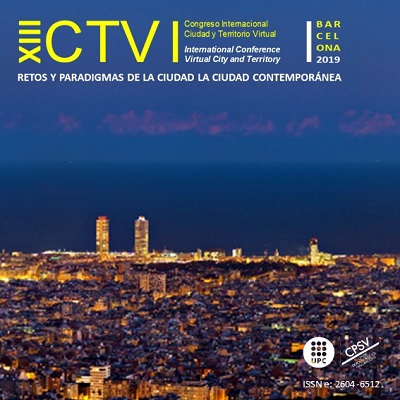La vulneración del derecho de la mujer a la vivienda en España (2008-2018)
DOI:
https://doi.org/10.5821/ctv.8413Palabras clave:
derecho a la vivienda, política de vivienda, perspectiva de género, exclusión residencialResumen
El objetivo de este artículo es analizar la dimensión física y económica de la exclusión residencial entre las mujeres en España durante el periodo 2008-2018. La investigación se basa fundamentalmente en la explotación de dos fuentes estadísticas: la Encuesta de Condiciones de Vida (ECV) llevada a cabo por el Instituto Nacional de Estadística (INE) y la Encuesta sobre Integración y Necesidades Sociales de la Fundación FOESSA (EINSFOESSA) de 2018. Los resultados anteriores se han complementado con datos de fuentes secundarias obtenidos a través de una revisión bibliográfica no exhaustiva. La principal aportación de este trabajo radica en el hecho que ofrece una visión completa y actualizada de un tema escasamente analizado como es la feminización de la exclusión residencial en España. Los resultados muestran de forma concluyente que el estallido de la burbuja residencial y la posterior recesión económica provocaron una grave crisis residencial que afectó con mayor intensidad a las mujeres. La dimensión económica de esta feminización de la exclusión residencial es particularmente visible en la evolución de la relación entre ingresos del hogar y costes residenciales. Durante todo el periodo 2008-2018, el esfuerzo económico de las mujeres para satisfacer sus costes residenciales, así como, por lo general, su tasa de sobresfuerzo económico, fueron superiores al de los hombres. Por ello, estos hogares tienen una mayor propensión a desarrollar estrategias residenciales orientadas a reducir los costes de su vivienda como, por ejemplo, el subarriendo de habitaciones, bajos consumos de electricidad, agua o calefacción, o una mayor movilidad residencial en busca de viviendas más asequibles. Al respecto, hay que destacar los mayores niveles de vulnerabilidad residencial que soportan los hogares monoparentales y aquellas mujeres que viven solas en alquiler. Esta peor situación de la mujer en el mercado residencial también queda reflejada en las condiciones físicas de la vivienda y su entorno. Los hogares encabezados por una mujer suelen sufrir con mayor frecuencia en su vivienda: problemas de insalubridad, escasez de luz natural, déficits de rehabilitación, y existencia de barreras arquitectónicas; y se ubican en barrios donde también son mayores las probabilidades de padecer problemas de contaminación, ruido, vandalismo y delincuencia. Ante esta realidad, resulta oportuno reflexionar sobre la eficacia del conjunto de documentos políticos y jurídicos que a nivel nacional e internacional exhortan a los gobiernos a garantizar el derecho de la mujer a una vivienda digna y adecuada. ¿Cómo puede explicarse que el derecho de la mujer a la vivienda en España haya alcanzado semejantes cotas de vulneración a pesar de la extensa relación de tratados y convenciones internacionales que lo protegen y que son de aplicación en el territorio español? Es evidente que no existen medidas suficientes que corrijan la feminización de la exclusión residencial en España. Es más, probablemente los recortes de gasto público que se han llevado a cabo en España tras la crisis no han hecho más que socavar las de por si débiles políticas de igualdad y de vivienda de nuestro país, y por extensión, ensanchar la brecha de género (gender gap) en materia de exclusión residencial. En este contexto, resulta obvio que es necesario superar el plano teórico-declarativo del reconocimiento del derecho a la vivienda y a la igualdad entre hombres y mujeres, y conseguir que estas políticas se implementen, se doten presupuestariamente con los recursos necesarios, y se evalúen.
























